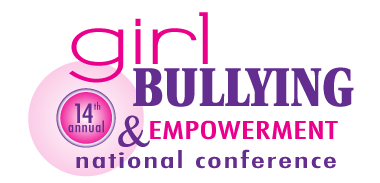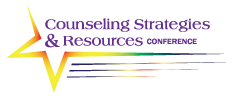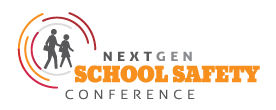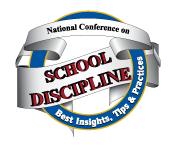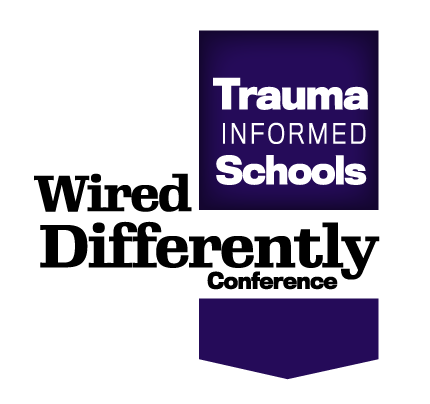Innovative Schools Summit Conference
These 3-to-4-day events provide an opportunity for counselors, teachers, administrators and other educators to learn about new insights and strategies for reaching and teaching students PK-12.
The Innovative Schools Summit assembles internationally recognized innovators together with practicing educators and consultants who are currently finding success with cutting-edge best practices and research-based methodologies in education. These 3-to-4-day events provide an opportunity for counselors, teachers, administrators and other educators to learn about new insights and strategies for reaching and teaching students PK-12. In 2020, the Innovative School Summit will be hosted in three great locations (Orlando, Atlanta, Las Vegas & San Antonio), each covering 4-5 topic-specific National Conferences – providing a unique opportunity for attendees to learn key insights from a broad spectrum of experts and colleagues from around the country.
The At-Risk & Struggling Students Conference focuses on evidence-based programs and strategies that educators can use to prevent dropouts and to help students experience success in school. More than 1.2 million students in the United States and Canada drop out of high school each year (with the percentages skewed toward males, low-income and minority students). Millions more are considered at-risk because they exhibit ongoing disciplinary problems, impulsive behavior, truancy issues and have become frustrated or disengaged. The long-term cost of failing to engage these students is tremendous, since they are much less likely to transition successfully into adulthood and to achieve economic self-sufficiency. Attend the At-Risk & Struggling Students Conference to gain valuable insights and to explore practical ways to help this critical portion of your school’s population.
Recently in the United States, gender-based education research has focused much more on the learning, social outcomes, and schooling experiences of boys. Boys are more likely to be held back, suspended or expelled — or to drop out of school altogether. The Boy Brains & Engagement Conference will help educators understand and support the unique neurochemistry of the male brain, decrease dropouts, improve academic outcomes and encourage a post-secondary educational mindset.
The Counseling Strategies & Resources features best practices from educators and other professionals working with youth. Some programs will be research-tested, while others will be promising, innovative approaches created by practicing professionals to help them better connect with different types of students.
The Girl Bullying & Empowerment Conference brings focus to the problem of relational aggression among girls. Quite naturally, many of the field-tested interventions presented at this unique gathering encourage friendship, sisterhood and building other types of supportive relationships – hence the added emphasis on female empowerment.
This unique gathering will help counselors, principals, teachers, social workers and other professionals understand the latest research and field-tested strategies designed to address relational aggression and to build positive, supportive relationships among girls.
The National Conference on Innovative Teaching Strategies will assemble internationally recognized innovators together with practicing educators and consultants who are currently finding success with promising fresh approaches and research-based methodologies.
This 3-day conference will provide an opportunity for teachers, administrators and other educators to learn about new insights and strategies for reaching and teaching students (PreK-12). It will emphasize evidence-based and novel instructional practices from national-exemplary programs currently being used in schools.
This forum will provide a unique opportunity to learn key insights from experts and colleagues from around the country.
At the NextGen School Safety Conference, school safety coordinators, school resource officers, principals, heads of school, superintendents, board members, student services directors, risk management directors, loss control coordinators, health services coordinators, school nurses and human resources personnel will come together to focus on all aspects of improving the physical safety of students and educators.
Tragedies such as the recent shootings in Townville, SC, Columbus, OH and Mobile, AL – as well as notorious events such as Sandy Hook and Columbine – have brought increased attention to school safety. The NextGen School Safety Conference will focus on steps that schools can take to prevent tragedies such as Sandy Hook, while also addressing steps that can be taken to prevent “everyday” tragedies – such as a teacher suffering a serious back injury, a teenager suffering a serious concussion or a second grader stepping in front of a school bus.
As important as it is to prevent intruder episodes and other forms of violence, statistics reveal that a student is twice as likely to die from suicide and 5 times as likely to succumb to some form of unintentional injury.
Scholars struggle to consistently define and distinguish the terms, but educators agree on the need to transform both “climate” and “culture” to improve academic outcomes.
This Conference features practical, real-world initiatives that are successfully transforming the quality, character and personality of schools. It showcases programs, assessments and tools proven to improve school culture and climate. Evidence-based and research-based interventions will be introduced, while the forum also highlights high-potential efforts currently being implemented in the laboratory of everyday school life.
The School Discipline Conference provides a forum where educators can gather information on various approaches and philosophies. It will assemble internationally recognized experts and speakers and will feature evidence-based programs as well as promising new approaches developed by practitioners.
Traditional exclusionary “consequences” – office referrals, in-school suspensions, out-of-school suspensions and expulsion – have the unintended result of removing the most academically at-risk students from the classroom. Citing current research in both the U.S. and Canada, advocacy groups and government agencies have supported an end to exclusionary and zero-tolerance policies, saying they are applied unfairly to minorities and student with special needs.
Truly effective schools not only help students pass their academic exams and state-mandated tests, but also prepare those students to pass the tests of life. Ironically, research shows that helping young people manage their emotions and build positive relationships not only prepares them for “real life,” but also helps them succeed academically. The Social-Emotional Learning Forum focuses on research-based and classroom-originated interventions, lessons and curriculums that help students manage their emotions, achieve goals, express heart-felt empathy for others, maintain positive relationships and make successful personal decisions.
About 1 million students served under the U.S. Individuals with Disabilities Education Act have been diagnosed with autism or other behavioral disorders. About 60 percent of these students spend the majority of their time in an inclusive classroom setting. Yet the Centers for Disease Control estimates that 1 in 5 students (upwards of 13 million) are, in fact, diagnosable for mental or behavioral challenges. Some parents choose not to reveal a diagnosis, while many students remain undiagnosed – which means that, even if not by design, every classroom in North America is inclusive by default.
Now in its eighth year, the Wired Differently: Trauma-Informed Schools Conference will offer a wide array of critical insights and best practices for reaching and teaching students with a variety of emotional and behavioral challenges – especially trauma, adverse childhood experiences (ACEs), PTSD and related issues. Principals, other administrators, general ed teachers, special needs teachers, resource teachers and paraprofessionals attending the Wired Differently Conference will benefit from tools, recommendations and strategies for working with this often high-potential portion of the student population.
